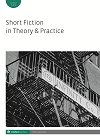
Full text loading...

This article examines the short story/essay ‘My Name is HannaH’ (2005) by South African-born writer Zoë Wicomb, focusing on its generic hybridity, its translocal quality and its deeply intertextual structure. Retracing the life and works of the South African poet Arthur Nortje through the artifice of fiction, Wicomb exposes the discursive and relational nature of space and identity. By analysing the story’s extremely heterogeneous intertexts and its playful generic inbetweenness, I seek to show how Wicomb refuses any form of categorization or fixed notion, exposing, rather, the seams and fissures of the textuality of reality. Ultimately, I argue that the thematic and formal features of the selected narrative can foreground the relationship between world literature and the short story as a liminal, cosmopolitan and mutable genre, particularly appropriate for the representation of the interconnectedness of our society.

Article metrics loading...

Full text loading...
References


Publication Date:
https://doi.org/10.1386/fict_00081_1 Published content will be available immediately after check-out or when it is released in case of a pre-order. Please make sure to be logged in to see all available purchase options.